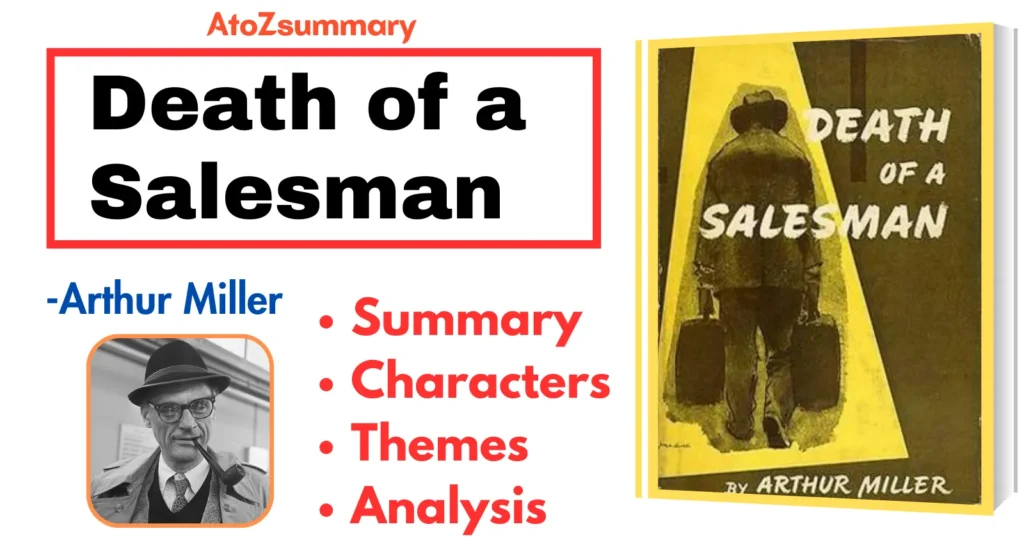
About the Book- The Man Who Loved Children
| Title | The Man Who Loved Children |
| Author | Christina Stead |
| Publication Year | 1940 |
| Publisher | Simon & Schuster |
| No. of Pages | 576 Pages |
| Language | English |
| Genre | Fiction, Family Drama |
| Setting | Washington, D.C., United States |
| ISBN-10 | 0312280440 |
| ISBN-13 | 978-0312280444 |
Characters
The main characters of “The Man Who Loved Children” by Christina Stead are:
- Samuel Pollit ➜ The father who loves his kids but has his problems.
- Henny Pollit ➜ The mother who feels overwhelmed and sometimes angry.
- Louisa Pollit ➜ The oldest daughter who sees everything in the family.
- Ernestine Pollit ➜ Another daughter in the family.
- Sam Pollit Jr ➜ The only son of Samuel and Henny.
- Josephine Pollit ➜ Another daughter with her own dreams.
- Phyllis Pollit ➜ The youngest daughter in the family.
Themes –
The themes of “The Man Who Loved Children” by Christina Stead are:
- Family Troubles ➜ The book shows problems in a family.
- Complicated Relationships ➜ People in the family don’t get along.
- Control and Power ➜ Some family members want to control others.
- Understanding People’s Minds ➜ It looks into why people do what they do.
- Talking About Kids ➜ It talks about kids and how they act.
- Being Mean ➜ Sometimes, people in the family are unkind to each other.
Synopsis
The Man Who Loved Children is a story about a family with lots of problems. The dad, Samuel, really loves his kids, but he’s also kind of strange. The mom, Henny, is overwhelmed and not happy. The book looks at how their family is not working well and how it affects their children. It talks about family fights and how they all feel. It’s a deep and complicated story about family life.
Summary
An Australian novelist named Christina Stead wrote a book titled The Man Who Loved Children. It was first published in 1940, and for many years it was mostly forgotten until it was republished in 1965 with an introduction by the poet Randall Jarell, who complimented the book for its sharp portrayal of family conflicts. After this, the book received favorable reviews and has since come to be regarded as one of the greatest English-language works of the century.
The Pollit family, led by Sam and Henrietta, better known as Henny, is the focus of the book. The couple has been leading nearly separate lives at the start of the novel, despising one another and interacting primarily with the kids. The oldest of Sam’s seven children is Louisa (Louie), who was born in his first marriage. She is the main character of the novel, along with her parents, and is eleven years old at the beginning of the book.
The family rents Tohoga House from Henny’s father, a big but dilapidated house near Washington. After spending a few hours away from the house, Henny returns home at the beginning of the novel, and her kids are eager to hear about her day. They appear accustomed to her yelling at them after which she withdraws to play solitaire by herself.
Sam announces to his family after returning from a business function that he has been chosen to join an American anthropological expedition to the Pacific. Louisa is the only person at home, so he tells her about his appointment.
The following Sunday, Sam awakens his kids and enlists the aid of Tommy, Ernie, and the twins Sam Jr. and Saul to paint the home. Sam enjoys spending time with youngsters, telling stories to his boys and the local kids in the area to pass the afternoon. The other lads are outraged when he declares that Ernest will be in charge while he is away. Sam openly pushes Ernest and Saul to engage in combat while making fun of Saul’s frailty. The affluent bachelor Bert Anderson, who provides Henny with the attention she needs, is where Henny spends her Sundays.
Louie visits the Kydds, an old couple, in the meanwhile. Despite rumors circulating in the neighborhood that Mr. Kydd beats his wife, Mrs. Kydd is consistently gracious to Louie and talks well of her husband. Louie is informed by Mrs. Kydd that although they have taken in a cat, they are unable to afford to maintain it and she lacks the physical strength to put it to death. As a favor, Louie consents to drowning the cat.
With news of their younger sister Bonnie, who works as a maid at Tohoga House, Sam’s older sister Jo visits him. Sam and Jo attempt to persuade Bonnie to end their relationship with a married guy. Jo tries to talk to Henny about the rumors when she gets home, but she seems indifferent. Henny and Sam have a financial disagreement after Jo leaves. After a protracted argument in which Sam beats her, they decide to have another kid.
Louie is content as she visits her mother’s family to spend the summer. She is taken to her father’s home by Henny along with her other daughter, Evie, when she returns. He is a wealthy man who resides on a grand estate. Henny talks to her mother about suicide techniques while there. The maid is also making fun of Louie by calling her an orphan, which ultimately gets her fired.
The family faces financial difficulties while Sam is away in Malaya. Henny, who is now pregnant, feels unhappy since the house is not heated. Louie consoles the kids with stories she makes up about Sam’s exploits in the Pacific when they write to him frequently.
Sam struggles with Malay. He hires a Chinese guy named Lai Wan Hoe to operate his office since he can’t handle the heat. He misses his kids since they are the only ones who are interested in his ramblings and anecdotes. Sam feels he is in over his head and decides to return home after Lai Wan Hoe flees due to financial issues.
Sam returns home to a large celebration that involves his family (parents and siblings). Since he forbids alcohol in the home, he is incensed when he learns that his brother poisoned the punch. As a result, Henny and I get into another furious argument, this time in front of all of their visitors and relatives.
Charles, a boy, is born shortly after to Henny. Henny’s father passes away without leaving an inheritance since he spent the family’s money. Henny needed the cash to pay off her bills. To make matters worse, Tohoga Place must be sold to pay off her father’s debts. Sam had been shielded by his father-in-law’s power at work as well, but now that he is gone, whispers about Sam’s ineptitude and potential affairs are starting to spread. His leave of absence is unpaid.
The family relocates to a run-down home in a destitute neighborhood of Annapolis. Sam is adamant that he can do all the necessary renovations to the house with the kids’ assistance. When he receives formal notice of his suspension, he rejoices at the opportunity to spend more time with his kids.
Louisa begins to uncover her true self at school, where she also meets Clare and discovers she has a gift for writing. They become friends because of Miss Aiden, their instructor, and their shared creativity. Sam attempts to get to know Clare by taking her out for ice cream with him and Louisa.
Ernie informs Sam that Louie has a hidden journal shortly after that. Sam retrieves it to amuse the family but discovers that it is in code. Sam has her translate and read her journal aloud when Louie gets back. She attacks Sam in a humiliated and enraged manner, lecturing him about his inexperience and naivety in the same way that Henny frequently does.
Sam spends most of his time with the kids, while Henny spends most of her time with her sister. Similar to the Louie incident, Sam finds out that Ernie has been keeping coal lumps beneath his bed to sell and makes fun of him in front of the other kids. Ernie then sees that a lot of the household’s belongings have vanished. His mother lies and claims they are with the family when he asks where they are. When he realizes she has sold them, he finds that she has removed all of his funds and replaced them with foreign currency.
Ernie and Evie present Louisa’s play about a foolish father who alienates his daughter on Sam’s birthday. She doesn’t understand why he is upset. That evening when Miss Aiden attends supper, she is horrified by the dwelling’s squalor. Sam decides to construct a bookcase for Louisa after she departs and discovers a volume of poems Louisa had written about Miss Aiden while doing so. It is filled with intense love and appreciation for the woman, and Sam once more amuses the family by reading it to them while Louie is embarrassed.
Sam finds an anonymous letter accusing Henny of having an affair while Sam is away in Asia and making the implication that his youngest kid is not his. Louie diverts the other kids with stories as the parents debate about the letter. Henny shouts at her family the following morning, threatening to kill them or herself. When Bert Anderson sees her, he is astonished and says they will meet again. She leaves to stay with her sister after he fails to appear.
After a few days, she goes home to find the family in total disarray. Henny discovers the infant in the yard eating its excrement after Sam abandoned the children and allowed them to feed themselves raw bacon and nuts.
Sam accepts a large fish from a friend and decides to boil it down to get the fish oil. The only way to do this is to light a fire beneath the bathtub, which he accomplishes while having the children alternately monitor the fire at night. The remainder of the fish are taken to a rubbish dump the next morning by the kids; Sam Jr. becomes sick at the scent. Sam makes fun of him for his frailty, throws the remaining fish parts upon his kid, and instructs him to clean the tub.
Louie, who is frantically trying to escape, believes that killing her parents is the only option. She puts cyanide in their morning tea to poison them, but Henny comes and notices something is off. Henny encourages Sam not to hold Louise responsible when Sam gets there and consumes the poison. She dies right away. Louie discovers a mannequin suspended from Ernie’s ceiling by a rope, which she interprets as a practice suicide.
The amount of Henny’s debt is eventually revealed to the family. As Sam’s reputation in the neighborhood improves, he accepts a job as a storyteller on a radio station. Louie exits the house after telling Sam about her desire to murder both Henny and him. She has no particular goals at this point, but she has finally escaped at the age of fourteen.
The Man Who Loved Children was initially set in Australia, but when it proved popular with American readers, the location was altered to Washington. Robert Stone, one of the several authors who have complimented the book, has stated that what interests him is that it appears to capture a specific sort of American guy and American family without actually being written about Americans.
About the Author-Christina Stead
| Author | Christina Stead |
| Full Name | Christina Ellen Stead |
| Birth Date | July 17, 1902 |
| Death Date | March 31, 1983 |
| Nationality | Australian |
| Literary Period | 20th Century |
| Literary Style | Realism, Complex and Deep Characters, Exploration of Family Dynamics |







![The Catcher In The Rye Summary, Themes & Characters [by J. D. Salinger] The Catcher In The Rye Summary, Themes & Characters [by J. D. Salinger]](https://atozsummary.com/wp-content/uploads/2023/06/The-Catcher-In-The-Rye-Summary-Themes-Characters-by-J.-D.-Salinger.webp)



